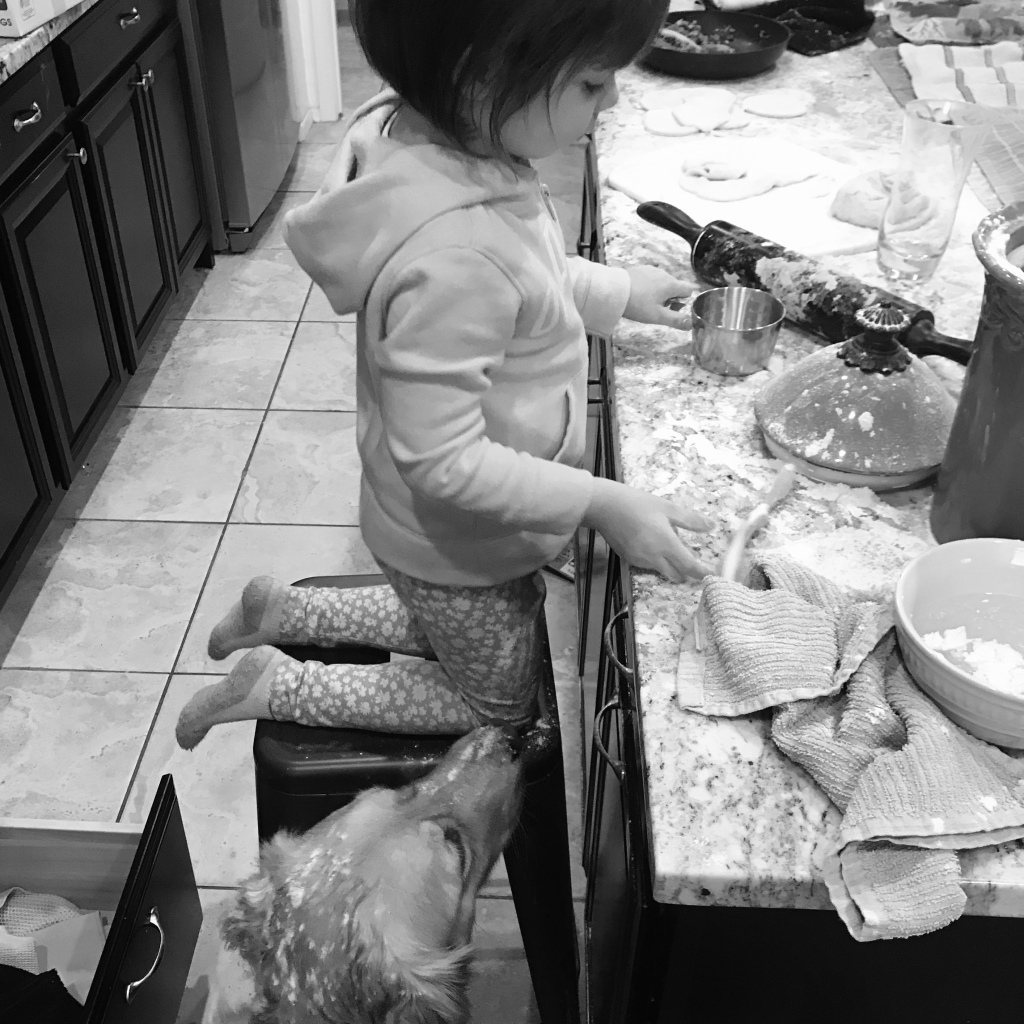On Christmas Eve morning, flour will be mixed with egg yolks & salt into a sticky mix. Then it will be rolled out, cut into circles, and stuffed with an assortment of fillings: traditional potato mixed with cheddar cheese, Lekvar (a prune paste), finely chopped mushrooms, or sauerkraut & kielbasa. Then they will be laid out on heavily floured tea towels to prevent sticking & covered until they’re all stuffed & ready to boil. Then the real job begins. The dumplings are scooped out of boiling water once they float & topped with burnt butter, the nutty smell of which settles into the walls for days. It takes concentration to keep eyes on pierogi in the undulating water & also not let the butter boil over. Depending on how many pierogi you make, the cooking portion can take longer than the stuffing.
Why do it? It takes so much time. My back aches at the end of the night. I always misestimate the amount of flour I’ll need. Every year I worry that I’ll be late for dinner because I didn’t start boiling early enough. At what point is the effort expended not worth continuing the practice?
I may only be half Polish, but this is the tradition that stuck. My great great grandparents made their way into this country through Ellis Island. They survived the Depression by owning & maintaining a butcher shop in New Jersey. Their families would gather around tables together to roll the dough, to stuff with delectable fillings, to seal with sticky fingers.
Today, mandating alliances in order to preserve a cultural identity is an antiquated practice, but the unsavory truth is that these traditions are always just one generation away from dying. Our bloodlines are melting together & clouding over, like the water after hours of boiling floured pierogi. There is a lot of good to be had in that cloudiness, identity forged by something other than history or geography. But the cost of melting together is that we forfeit a sense connection to the past.
My past is floured with memories of my mom in the kitchen over butcher block counter dressed in Christmas Moose overalls, reading off the recipe in my great grandmother’s handwriting. It’s scenes of my type-A sister micromanaging our pierogi, offering helpful & often unwanted tips. It’s flour on every surface, caked under finger nails, brushed like paint across damp foreheads. It’s laughter as a less type-A sister makes a pierogi so hideous looking, we wonder how Polish she actually is.
And now, I get to share this tradition with the family I married into. The scene has shifted to my husband’s cousins & siblings armed with aprons & Dutch Bros to fuel our endeavors. It’s my mother-in-law manning the mixer to keep up with the stuffing. It’s showing my own daughters how to pinch the dough between their tiny fingers so it seals.
I worry that we may lose the patience for such painstaking practices. Pierogi making is an all day endeavor. We roll dough until our arms ache & roll our necks as they stiffen from leaning over the boiling pot. And if we’re honest, sometimes we roll our eyes at those who share the load. But as long as I have space on my counter, it will be worth it to gather & labor over pierogi. It draws us together in a shared experience that is meaningful & rewarding. It echoes the generations before us who gathered over flour & filling. And as we savor the end result & clog our arteries in the process, we hope the tradition will continue on long after we’re gone.
